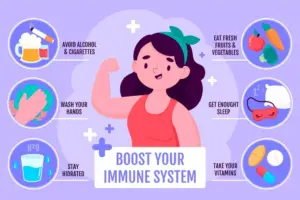Substance misuse disorders, also known as substance abuse disorders, refer to a pattern of using a substance, such as drugs or alcohol, in a way that leads to significant problems or distress.
These disorders can range from mild to severe and can take many forms, including:
- Alcohol use disorder: characterized by a pattern of excessive drinking that leads to problems such as blackouts, legal issues, and health problems
- Drug use disorder: characterized by a pattern of using drugs, such as opioids, cocaine, or marijuana, in a way that leads to significant problems or distress
- Nicotine use disorder: characterized by a pattern of using nicotine, typically through smoking or vaping, that leads to significant problems or distress
The exact causes of substance misuse disorders are not fully understood, but research suggests that a combination of genetic, biological, and environmental factors may play a role.
Some common causes of substance misuse disorders include:
- Genetics: Studies suggest that certain genes may make a person more susceptible to developing a substance misuse disorder
- Brain chemistry: Certain substances can change the way the brain functions, leading to addiction
- Environmental factors: Trauma, stress, and major life changes can increase the risk of developing a substance misuse disorder
- Mental health conditions: People with mental health conditions such as anxiety or depression may be more likely to develop a substance misuse disorder
Symptoms of substance misuse disorders can vary depending on the substance and the severity of the disorder, but some common characteristics include:
- Difficulty controlling substance use
- Continued use despite negative consequences
- Tolerance and withdrawal symptoms
- Difficulty fulfilling responsibilities
- Loss of interest in activities
To diagnose a substance misuse disorder, a healthcare professional will typically conduct a thorough evaluation, including a patient interview, a review of the patient’s medical and psychiatric history, and a mental status examination. They may also use diagnostic tools such as structured interviews, questionnaires, and rating scales to assess the severity of symptoms.
Treatment options for substance misuse disorders include:
- Behavioural therapies such as cognitive-behavioural therapy (CBT) and contingency management
- Medications such as antidepressants, anti-anxiety medications, and medications that can help with withdrawal symptoms and reduce cravings
- Support groups such as Alcoholics Anonymous or Narcotics Anonymous
- Inpatient or outpatient rehabilitation programs It’s important to note that treatment for substance misuse disorders is typically tailored to the individual and may involve a combination of different approaches. It’s important to work closely with a healthcare professional to find the best treatment plan and to prevent future episodes. With the right support, individuals with substance misuse disorders can manage their symptoms and lead fulfilling lives.
For further support and information please book an appointment with our specialists
To learn more about this topic, please click on:
- https://www.nhs.uk/live-well/addiction-support/addiction-what-is-it/
- https://www.drugsandalcohol.ie/13875/1/RCP_leaflet_AlcholDrugsAddiction.pdf
Dr. Ibrahim Yahli MD MRCPsych



